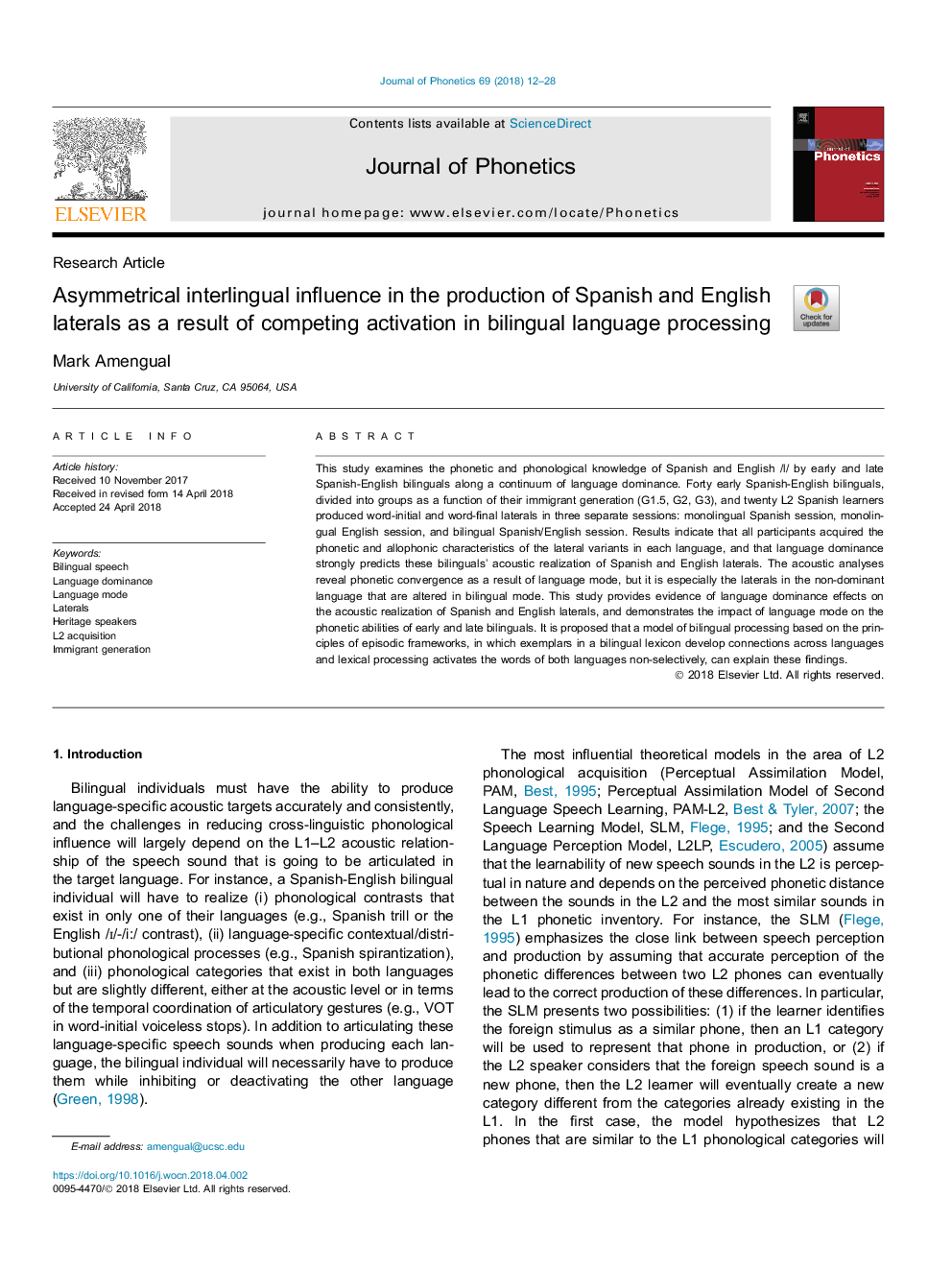| Article ID | Journal | Published Year | Pages | File Type |
|---|---|---|---|---|
| 7532707 | Journal of Phonetics | 2018 | 17 Pages |
Abstract
This study examines the phonetic and phonological knowledge of Spanish and English /l/ by early and late Spanish-English bilinguals along a continuum of language dominance. Forty early Spanish-English bilinguals, divided into groups as a function of their immigrant generation (G1.5, G2, G3), and twenty L2 Spanish learners produced word-initial and word-final laterals in three separate sessions: monolingual Spanish session, monolingual English session, and bilingual Spanish/English session. Results indicate that all participants acquired the phonetic and allophonic characteristics of the lateral variants in each language, and that language dominance strongly predicts these bilinguals' acoustic realization of Spanish and English laterals. The acoustic analyses reveal phonetic convergence as a result of language mode, but it is especially the laterals in the non-dominant language that are altered in bilingual mode. This study provides evidence of language dominance effects on the acoustic realization of Spanish and English laterals, and demonstrates the impact of language mode on the phonetic abilities of early and late bilinguals. It is proposed that a model of bilingual processing based on the principles of episodic frameworks, in which exemplars in a bilingual lexicon develop connections across languages and lexical processing activates the words of both languages non-selectively, can explain these findings.
Related Topics
Social Sciences and Humanities
Arts and Humanities
Language and Linguistics
Authors
Mark Amengual,
